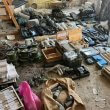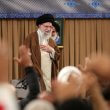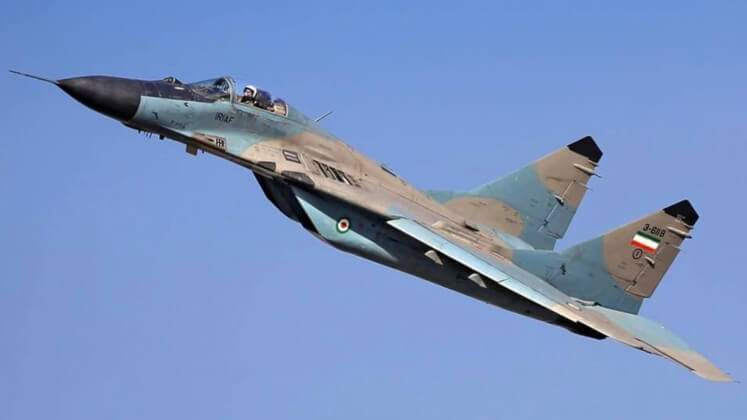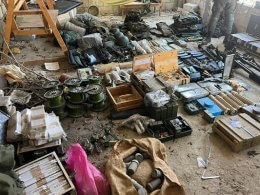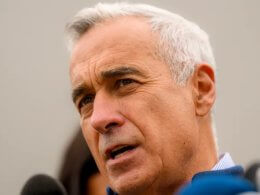The U.S. is "keeping a very close eye on Iranian facilities out there, continuing our evaluation of what it means, what Iran is using it for, what options we might have for those facilities,” United States Lieutenant General and CENTCOM Air Force Chief Alexus Grynkewich said in an interview Friday with the Jerusalem Post, discussing America's military options against Iran's nuclear program.
When asked about the idea that Washington's threats and military capabilities were not having an effect against Tehran in the last several years, given the regime's nuclear enrichment of uranium and centrifuge buildup, Grynkewich explained that the CENTCOM is "attempting to deter, as a matter of the U.S. position in the region."
"We're certainly trying to deter attacks on ourselves or any of our regional partners," he told the Post.
The Lieutenant General and CENTCOM Air Force Chief told the Post that America is trying to make sure that Tehran "understand that even though the U.S. doesn't have the same number of forces in the region as it had previously, we can still bring those forces back very rapidly."
Regarding Israel and America's partnership against Tehran, Grynkewich said that such collaboration is "extremely important" to the U.S. and that CENTCOM has an "ironclad commitment to Israeli security."
Grynkewich also made mention of the Arab partners in the Middle East, stating that the US intends to "maintain a true partnership – and not just a transactional relationship – and stitch the region together in a more integrated fashion."
The U.S. CENTCOM official also addressed the Islamic Republic's use of military drones against American, Israeli, and Arab ships, emphasizing the importance of Arab and Israeli allies sharing information with the U.S. to combat such devices.
Grynkewich also noted that CENTCOM has seen reports on Iran "potentially getting aircraft from Russia," which would become a significant concern for U.S. National security in the region.
According to U.S. officials, if Tehran received SU-35s and cruise missiles, it would significantly increase the ayatollahs’ military capabilities and boost its terrorist proxies throughout the Middle East.
As a result of the growing concern, Grynkewich stressed the need for the U.S. and its allies to" triangulate and correlate" information from detection systems to monitor such threats.
"We are all very concerned about an Iran nuclear weapon," Grynkewich said when asked about Tehran's nuclear program.
The U.S. CENTCOM official was also concerned about Iran's "asymmetric capabilities" and how they have supplied proxies in Lebanon, Gaza, Syria, Iraq, Yemen, and other parts of the Middle East.
Grynkewich noted that intelligence cooperation between CENTCOM and Israel is critical in combating Tehran's nuclear program, noting that both sides have been increasing surveillance of atomic facilities built by Tehran.
Towards the end of the interview, Grynkewich mentioned his strong relations with IDF Air Force Chief Major General Tomer Bar and other Israeli officials concerned with threats in the Middle East.
"In the course of my engagements over the two years," Grynkewich told the Post, "I built up a fairly strong mutual understanding" with key senior Israeli defense officials.
As the U.S. and Israel continue to increase cooperation against the Islamic Republic of Iran and its terrorist proxies, the Jewish state, under the leadership of Prime Minister Benjamin (Bibi), has vowed to do whatever is necessary to prevent Tehran from acquiring a nuclear bomb, including military action.
While the Biden administration has hoped to revive the 2015 nuclear agreement with Iran, the Israeli government continues to build up its military capabilities against Tehran, vowing to attack the Ayatollahs alone if necessary.
Despite massive protests from Iranians against the regime, the administration and its pro-Islamic regime lobbyists continue to press for a deal with Tehran before the 2024 Presidential Elections.
Related Story: U.S. CENTCOM Commander Warns Russia “Beholden” to Iran in the Middle East


